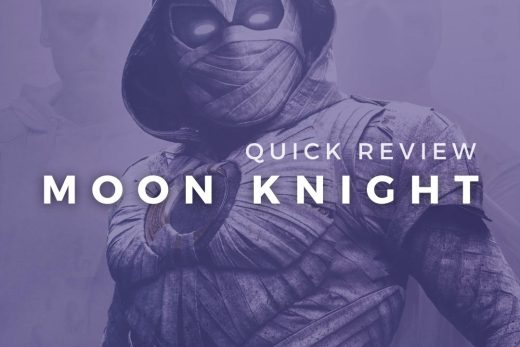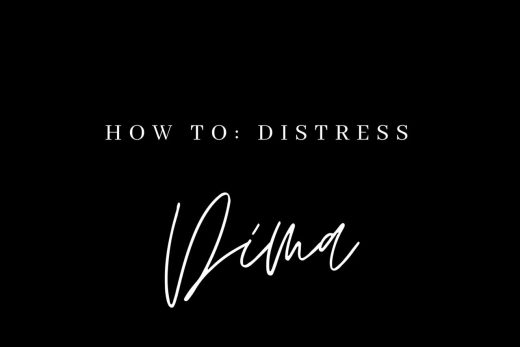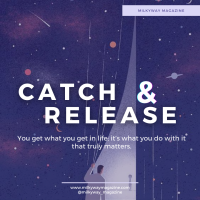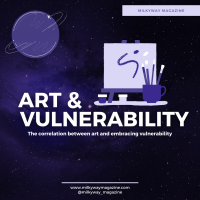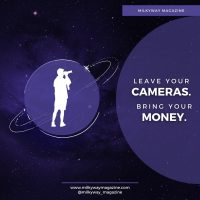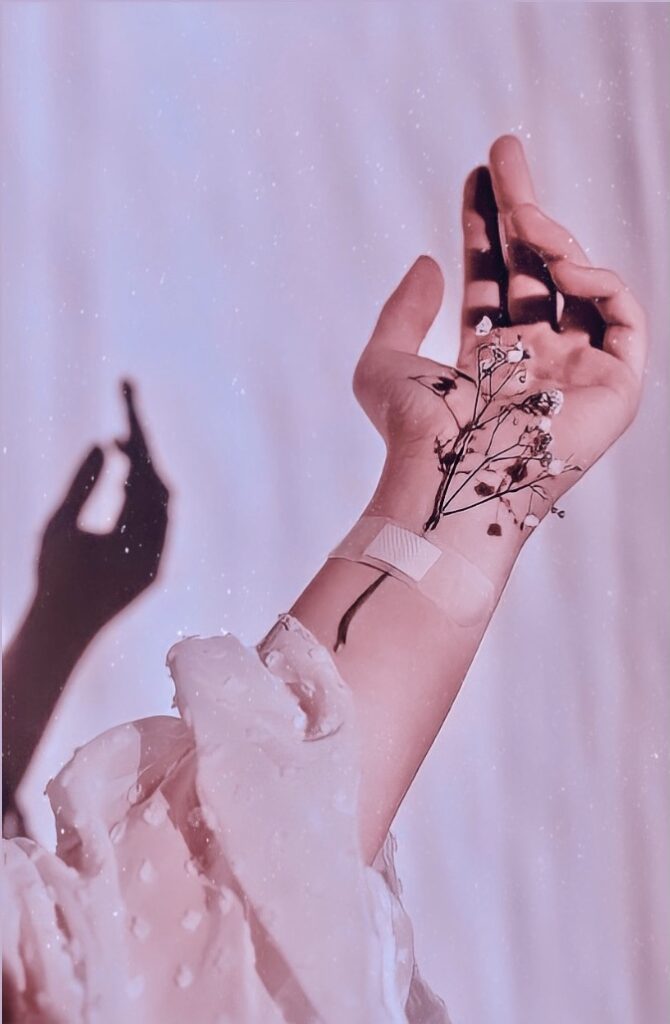
Writer: Malak Raslan
Editor: Khaled Ibrahim
Dear Reader,
The process of writing this was like writing in your journal: hurriedly trying to get every word that comes to mind out onto the paper, followed by a loss for words and a numbness of the brain, but then another wave of thoughts crash right at the moment you’re about to give up, and so the cycle begins anew. I wrote this piece in hopes of making us both feel less alone in our thoughts, in an attempt to save us from drowning in the deep, dark well that is depression, and to perhaps give you a hand on your road to healing.
With love and so much appreciation,
Malak Raslan
On the Road to Healing
Have you ever gone through a rough period, one that was so long and that you felt was never going to end, that it actually becomes the normal “you” for a while? That was a long question, but if your answer is “yes”, then you might be familiar with the following phrases: “No one gets what I’m going through,” “I feel nothing,” “I want to die,” “What are we even doing on this planet?.” etc. While I’m simply incapable of answering these questions, I want you to know that I hear you, and I get you. In this article, I’ll be talking about the emotions that we’re both going through and for us to feel less lonely through it all.
*Side note: I will be using “depression” and “anxiety” as general terms to describe the things I went through, however, I have not been officially diagnosed with anything. I do NOT promote or encourage self-diagnosis. Please, if you experience something severe or feel that something is wrong, go see a professional. I am not a professional, either, and so whatever I say is only about me and my experiences, and does not necessarily apply to you or your experience.
Zombie Zone
My current state shifts rapidly from feeling everything at once to feeling nothing at all, just numbness. This depressive episode, which I call the “Zombie Zone”, didn’t occur when I was sad or when I found myself in a bad situation, either. It occurred when I was seemingly “okay”, but everything was bottled up and too many feelings were involved, resulting in numbness. I had had a looooong depressive episode where I couldn’t do anything I love and felt nothing when I finally did it, where the lyrics, “addicted to a losing game” from Arcade by Duncan Laurence made sense. I knew that I was getting out of this episode, even if just for some time, when I decided I was finally ready to conquer my thoughts and face some of my fears.
After getting out of the Zombie Zone, I started acknowledging my problems: trying not to use distractions as a coping mechanism, trying to recognize procrastination as the way it is for me (an escape from the tasks that I’m afraid I’ll mess up or end up not reaching my unachievable standards), knowing my triggers and how to deal with them, trying to acknowledge the hidden reasons behind physical symptoms like shaking, stress ticks, headaches, back pain, etc., reflecting on everything I can remember, and most importantly, not rushing the healing process.
Healing is not a Linear Process
No kidding! It is not a linear process. It’s all over the place. I go from feeling absolutely nothing, to being okay and happy, to panicking and stressing and having too many emotions, and right back to being a walking zombie. Am I healed? Nope, not at all. Am I healing? To be fully honest with you, I can’t fully admit that, either, because I keep forgetting my achievements. Even back when my mind was messed up and I only felt numbness, deep emptiness, and sadness with an occasional sprinkle of happiness whenever I watched anime or read a good book, I still achieved so much. Maybe not enough to satisfy my standards, but still, they were achievements.
“The opposite of depression is not happiness but vitality” – Andrew Solomon
The things that I started to do to feel more “alive” are the following: actively trying to reflect on the good things and to acknowledge their existence, working on my projects effectively (as in not working except when I really want to, because then I find myself finishing everything in better quality), going back to writing and doing the things I love, celebrating the moments where I feel a sense of achievement, rewarding myself, and trying to work on my gratitude through journaling, reflecting, and meditating.
Problems with Healing
Healing is good and all, but it comes with its own set of problems. When you start feeling better, some fears arise, such as: 1. Being so afraid of going back 10 steps in your healing, 2. Fear of losing the things you’ve spent so much work, sweat, and tears to have, 3. Fear of losing your sense of self again, 4. Fear of everything slipping away without you even noticing, 5. Fear of you ruining every good thing that you ever had, and worst of all, 6. Fear of depression and numbness coming down and ruining a happy occasion. Healing comes with brand new anxious thoughts that you have to deal with every single day, but as Sneha Rajaram said in her Firstpost article¹, “Anxiety, too, is one of these signs of life.”
This makes me wonder, “Is depression my comfort zone?”
Depression = My Comfort Zone
Depression may become one’s comfort zone because it has simply stayed with that person for too long that happiness brings so much anxiety and makes the person long for familiarity instead. The person, AKA moi, goes through multiple stages to experience feeling “alive” even for 2 minutes. One stage, in particular, is the one where the person doubts their progress very much because of various setbacks with their mental being or going back to habits that one developed overtime during their depressive episode, and/or simply when something triggers or reminds them of a similar situation that one experienced while they were in a dark place.
Every feeling is true, but not every thought is. A lot of the time, we have issues telling apart what is real and what’s a figment of our imagination that our mind decided to treat as reality. This becomes the side dish to the main course, depression being one’s comfort zone. Oftentimes, when people are depressed, they develop a relationship with this state to the point where they feel it’s part of who they are and that they do not want to get better, whatever “getting better” might mean anyways. Your mind adapts to feeling sad or empty all the time, so much so that any new feeling is considered uncomfortable and even perceived as “dangerous.” So, whenever I feel as if I’m getting better, my brain either shuts off completely or makes my thoughts spiral into the “Fear Vortex”, a state where you keep getting scared of your progress and feel that you’re being sucked into all of those fears that your mind deemed true and happening right this second.
Fear Vortex
Vortex: something that resembles a whirlpool.
How do we get out of the fear vortex? The fear vortex makes someone feel as if their life is flashing by before their eyes, like the very tape of their life is being unfurled, which raises panic of losing time and dying while still being alive. A dead soul in an alive body. One wishes to just pause those feelings and go back to the time when they felt numb and didn’t experience panic or stress, and when the connection of life had no signal shown in one’s mind. This is a vital part of one’s healing because one’s reaction to it shows how much they have actually healed, or what they consider healing. This is one of the hardest parts of healing, where you experience bare your scars to the wind to blow at and are left with a painful burning sensation. The good news is that despite everything you are healing now, you are experiencing feelings, which are a natural part of life.
The light at the end of the tunnel
All the things I’ve mentioned so far do not change the fact that I’m “healing.” I am healing in my own way and at my own pace. Remember, even though you’re healing, you can still have the lens from which you saw life from when you were still depressed, but now things are less foggy. You can experience the blessing of this hideous period of time, while at the same time trying to tame its curse. What I define as me “healing” is when I start to do the things I love, when my reality and imagination get separated, and when I start amassing the energy to do anything. For some people, healing is when they sense hope, when they start to hope, or even when they just want to be better.
We are all on our own journeys, fighting our own battles. Perhaps no one understands because they don’t truly see others’ fights, but what truly matters is that we are all on the same road to healing.
Thank you for reading.
Author’s Background:
Malak Raslan is a 20-year-old Egyptian AnimeLover who is interested in music, reading, writing, and content production. She is studying Creative Business in the Netherlands and is starting her career as a creative figure using her own social media accounts. She’s currently working as a social media specialist for Milkyway Magazine.
—–
I recommend listening to Fairytale by Livingston or Fairytale by Rosendale; both of which are amazing songs that I have been obsessed with while writing and editing this piece. I was initially searching for Fairytale by Alexander Rybuk since it was all over my TikTok (Booktok to be specific), which I like more than the original, and I ended up finding those 2 gems instead.
—–
Contact Details
Email:[email protected] Username on any platform: @malakkraslan
——
Sources used in this article:
¹ Sneha Rajaram – Understanding mental illness: Depression as comfort zone — and why we shouldn’t normalise it, Firstpost
² Challenging Anxiety, Depression, and Comfort Zones – Medium
—–
6 Questions to ask yourself after reading this article (if you want to share these answers with me, I would be happy to have a chat with you and answer any question you have for me):
- Are you okay? (Open for interpretation, so whatever okay means for you works with this answer)
- What did you feel reading this?
- From 1-10, how much do you agree with the following sentence, “Depression, with all its bad moments, is something I can’t get out of and I feel that I don’t want to.”?
- Would you rather experience the stress from the “new” happiness you’re feeling or go back to feeling nothing?
- Do you believe in being fully healed?
- While answering these questions, did you feel understood and less lonely in your thoughts?

